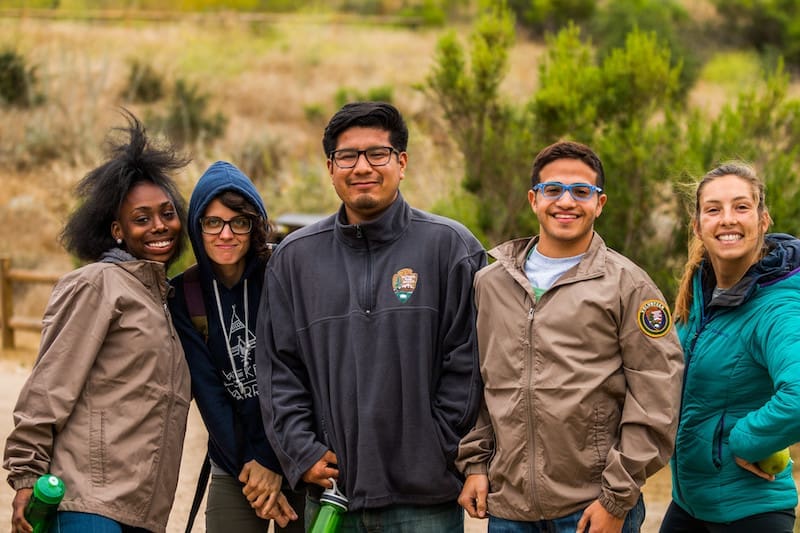Career PrepHow to Make the Most of a Summer Job or Internship
Vicki Nelson

Ah, the lazy hazy days of summer! After studying hard all year, high school and college students are looking forward to beach or pool time, sleeping late, afternoon siestas, barbecues and long evenings spent with friends.
Summer should certainly include all these things. But for most students, summer also means finding a job to earn money for college, a volunteer position to satisfy community service goals, or an internship to gain experience. So the "lazy" part? Not so much.
If your student will work this summer, start the conversation about how they can be proactive to make every experience a learning opportunity. Whether they’ll intern at a TV studio, law firm or local hospital, or bag groceries, wait tables or scoop ice cream, their approach to their summer job can make all of the difference.
Here are four strategies to consider.
Practice Professionalism
- Set goals. Be clear about what you want from this experience beyond a paycheck. Talk to your supervisor or someone who can help you accomplish your goals.
- Practice excellence. Double-check every piece of work, proofread and edit every piece of paper. Take time, take care, sweat the details. Nothing is trivial.
- Be remembered for always going above and beyond whatever is asked. Do just a little more than you need to do no matter how large or small the task.
- Take initiative. Make it a habit to ask “what’s next?” Look for ways to make yourself useful. Recognize opportunities to make things better.
- Transition from being a student to being a professional. Observe how people dress, interact with others, conduct meetings, communicate through email or on the phone, when they arrive for work or leave at the end of the day.
- Learn new skills. If there’s something that you don’t know how to do, learn how to do it. Ask for help if necessary, or learn on your own time so you’ll be ready next time it comes up.
- Look for transferable skills. Practice problem solving, being proactive, advocating for what’s needed, functioning independently, collaborating with co-workers. You can use these skills no matter where you are or what you do.
- Say yes. Within reason, say yes and take advantage of all of the opportunities that may come up.
Take Time to Reflect
- Observe and evaluate your experiences regularly. Consider keeping a “five minute journal.” Add something after each shift or day at work, even if it’s just a sentence or two. What did you see or hear that was interesting? Does anything relate to your major or field of study? Did anything surprise you or spark new ideas or interests? You can use these details if you need to summarize a job or internship in future cover letters, during interviews, or in scholarship or admission essays.
- Send thank-you notes. If anyone goes out of their way to help you, thank them. At the end of the summer, thank your supervisor, boss or mentor. Practice gratitude.
Cultivate Curiosity
- Develop your curious mind. Don’t understand something? Do some research. Mystified by why something is done in a certain way? Ask about it.
- Practice asking good questions. Ask questions that demonstrate that you care, show you’ve done your homework but want to know more, and show you’ve reflected on what you were told earlier.
- Ask people to share their stories. Get beyond the obvious or superficial. Talk to your manager, supervisor and colleagues about what they do, why they do it, why they love (or hate) their job, how they got here. Show genuine interest and practice good listening skills.
- Ask for feedback. Ask what you’re doing well and how you could improve. Thank people for their feedback. And then use the feedback that you receive.
Prepare for the Future
- Make connections and use opportunities to network. Reach out to people. Learn their names. Ask what they do. Ask for their business cards. You never know who may be the person who can later help you find a job or provide a reference.
- Build real relationships. Don’t just collect those business cards — find some people you can really get to know, beyond name and title. Enjoy these interpersonal connections. Take part in the workplace community.
- Build your LinkedIn profile. Connect to people you’re working with this summer, and add the new skills you’re mastering.
- Look around to get the bigger picture. How do you fit into the overall structure of the company or organization or professional field? What do you observe about the workplace culture and business model? How do they handle finances, public relations, marketing, personnel decisions, day-to-day operations? What other opportunities are there?
- Ask for a letter of reference at the end of the summer. Asking while you are fresh in someone’s mind will make it easier and more meaningful than contacting them six months or a year later.
- Think about next steps. What did you learn that can inform how you continue to prepare for a career some day? What should your next summer experience be?
Many students already know and practice some of these skills. But whether your student is spending the summer painting houses or volunteering for a non-profit, practicing professionalism, reflecting on the experience, asking meaningful questions and looking toward the future will make the experience more useful — and more rewarding, too.
Join Our College Parent Newsletter!
Get stories and expert advice on all things related to college and parenting.
Vicki Nelson has more than 35 years of experience in higher education as a professor, academic advisor and administrator. She also weathered the college parenting experience successfully with three daughters. She established her website,
College Parent Central, to help college parents achieve the delicate balance of support, guidance and appropriate involvement as they prepare for and navigate the college journey with their student. Vicki also serves as co-host of the
College Parent Central podcast.

